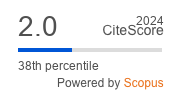The Medical School of the Catholic University of Croatia: Principles, Goals, Standards and Organization
DOI:
https://doi.org/10.5644/ama2006-124.215Keywords:
Medical education, Transformative learning, Social accountability, Patient-centered care, Longitudinal integrated community clerkshipAbstract
The aim of the study was to present the concept on which the School of Medicine at the Catholic University of Croatia (CUC) will be established. The new School will alleviate the shortage of physicians in Croatia and introduce an innovative form of medical education focused on principles of patient-centered care and social accountability. At the same time, the students will acquire all relevant competencies and levels of knowledge, skills and attitudes that are required by current evidence in medical education, European standards and guidelines for quality assurance at higher education institutions. The four pillars of the CUC Medical School are: 1) distributed medical education that involves health institutions outside major medical centers, 2) the concept of transformative learning, 3) teaching and practicing evidence-based medicine, and 4) implementation of quality management principles supported by information technology solutions for effective management of learning, research and practice. The overall aim of the CUC School of Medicine is to educate and train physicians capable of using best available medical evidence to deliver economically sustainable healthcare that can improve equity and health outcomes in the communities they serve, particularly those that are currently underserved.
Conclusion. The proposed programme is introducing an original system of modern medical education that insists on developing humanistic aspects of medicine, patient-centred care and social accountability, while maintaining all competencies and knowledge levels that a physician should have according to the current understanding of medical education.





